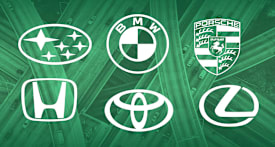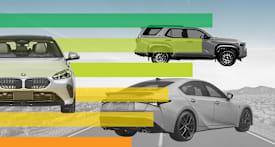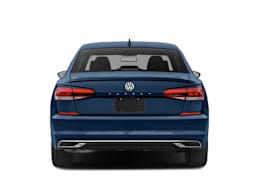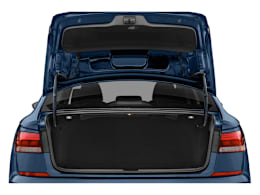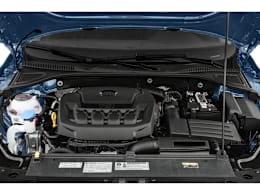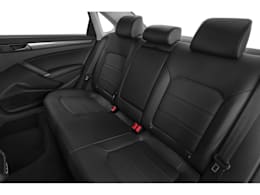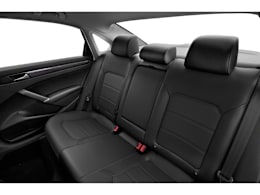The 2020 Passat looks a lot like the model it’s replacing, but a minor update helps the midsized sedan keep pace with the competition in terms of advanced safety features and infotainment. Although it may appeal to buyers who want a traditional-looking sedan with lots of interior space, the Passat is showing its age against newer competitors—which is apparent once you drive it.
The Passat certainly has its positives. For example, the seats are comfortable, there’s limousine-like spaciousness in the rear, the trunk is massive, and the car is very easy to get in and out of. Climate and other important controls are super easy to use, and the straightforward infotainment system is compatible with Android Auto and Apple CarPlay. Those qualities alone make it quite a practical sedan. But unlike the rest of the Volkswagen line, the Passat is still based on an older, less sophisticated platform, and it trails the competition in some key areas.
The 2.0-liter, turbocharged four-cylinder delivers sufficient power. Unfortunately, initial acceleration from a stop can feel a bit abrupt. We measured fuel economy of 28 mpg overall, which is worse than many of its competitors. And the Passat’s optional adaptive cruise control is not capable of keeping up with stop-and-go traffic.
The Passat’s ride has an underlying firmness but absorbs bumps decently. Handling is a bit dull in corners, but the car feels more responsive on wider, sweeping bends. When pushed to its limits, however, the Passat’s rear wheels tended to lose traction. Electronic stability control eventually stepped in to reign in the tail, but that kind of momentary upset could be startling for inexperienced drivers.
Forward collision warning, automatic emergency braking, pedestrian detection, blind spot warning, and rear cross traffic warning are all standard.
